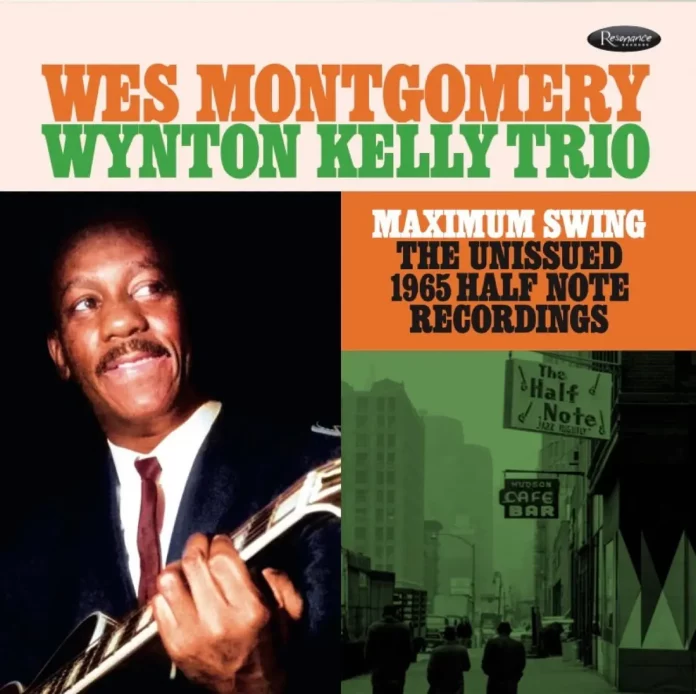Released with the permission of the Wes Montgomery estate to mark the hundredth anniversary (6 March 1923) of his birth, these are previously unreleased radio broadcasts of his several appearances at New York’s Half Note club in 1965.
Dedicated to the memories of Montgomery, Kelly, Paul Chambers, Jimmy Cobb and Herman Wright, there are booklet notes by producer Zev Feldman. They include excerpts from his 2023 conversations about Wes. “He had a different kind of sound with his instrument” (Ron Carter); “He changed the face of jazz electric guitar” (Herbie Hancock); “Wes’s music is so accessible. There is so much joy in it. But there’s so much depth” (Bill Frisell); and “What really amazes me – I never saw him live – was the fact that he played with his thumb” (Mike Stern).
Critic Bill Milkowski commends all the titles and plausibly suggests that they capture Wes “at the peak of his powers in an unrestrained setting”. Montgomery associate Wynton Kelly also receives deserved praise for his skills as accompanist and soloist. His cousin Marcus Miller recalls “people told me the way he comped was like if somebody had crafted a suit just for you… a suit that fits you perfectly”.
The 17 tracks feature five alternate and distinguished bassists (see discography below) and are valuable for several reasons. They supplement titles included on an earlier release (Smokin’ At The Half Note) with the Kelly trio. Maximum Swing has Wes playing extended solos, joking with (over-jolly) presenter Alan “Stay Beautiful” Grant, and audibly responding to an appreciative audience.
The selections include Montgomery favourites – two versions of No Blues and Four On Six (four fingers on six strings) which first appeared on the 1960 The Incredible Guitar of Wes Montgomery), Jerome Kerns’ The Song Is You and All The Things You Are. Stuart Nicholson has commented that on all these titles Wes reveals himself as a “consummate story teller, creating solos of strong melodic interest, while rhythmically playing a fraction ahead of the beat, so creating the sensation of maximum swing.” This is particularly evident on the uptempo versions of Song Is You (with Kelly dominating the proceedings) and All The Things (with an extended drum break from Cobb).
Birks’ Works receives a staggering five-minute work-out from the guitar player. On other performances – a Latin-flavoured Mi Cosa (a Wes original), an Afro-Cuban Star Eyes, and Miles Davis’s No Blues – the already well-acquainted group fashion cohesive and compelling interpretations.
So far so (very) good, but there are caveats, notably the distorted and erratic sound on some titles. This is evident on Laura, the opening track, which may have been recorded in a steam bath. They are even more pronounced on the five long concluding cuts which include the second version of Four On Six. The provenance of these broadcasts is unclear, but they are “credited” to a Japanese listener using primitive equipment. Only dedicated Wesleyans will want to give them repeated hearing. They should not, perhaps, have been included on the set. But on balance this is yet another triumph for Zev Feldman and Resonance Records. Maximum Swing is not simply hyperbole. Just listen and marvel.
Discography
CD1: Laura; Cariba; Blues; Impressions, No Blues; Birks’ Works; Four On Six; The Theme (50.10)
CD2: All The Things You Are; No Blues; Cherokee; The Song Is You; Four On Six; Star Eyes; Oh, You Crazy Moon (74.18)
Montgomery (g); Kelly (p); Paul Chambers, Ron Carter, Larry Ridley or Herman Wright (b); Jimmy Cobb (d). Half Note, New York, September-November 1965.
Resonance Records HCD-2067
















